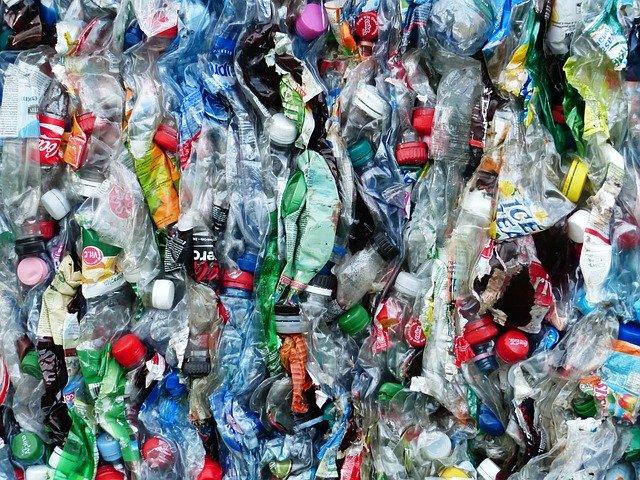
by Eleanor Palmer, Cambridge Zero
COVID-19 has led to a resurgence in plastic use across society, from PPE to the likes of Pret, Caffè Nero and Starbucks no longer accepting reusable cups and exclusively relying on disposables. However, Taylor Uekert (Department of Chemistry) is hopeful that this plastic renaissance will inspire more holistic thinking about plastics and the entirety of their lifecycle.
The recognised need for the material properties that plastic provides (it is flexible, cheap, durable, lightweight, waterproof and versatile) could trigger greater appreciation of the need for it to be sustainably used to ensure its continued availability. Our reliance on plastic highlights the importance of considering not just how it is used, but where it comes from and where it may go. The need for a comprehensive exploration of plastic is echoed by the research vision of the Cambridge Creative Circular Plastics Centre (CirPlas), which Uekert’s research contributes to.
CirPlas explores plastic from a myriad of perspectives to further the aim of reducing waste across plastic’s whole lifecycle. The centre’s four key themes are:
- Sustainable Feedstocks and Materials (Lead: Prof Paul Dupree - Biochemistry)
- Manufacturing and Recycling Processes (Lead: Dr Adrian Fisher - Chemical Engineering and Biotechnology)
- Tracking Plastics Material Flows (Lead: Dr Jonathan Cullen - Engineering)
- Waste and Management (Lead: Dr Brigitte Steger - Asian and Middle Eastern Studies)
Within the second theme, Uekert’s research investigates how plastic waste, when combined with water, can be broken down into hydrogen fuel through using sunlight and photocatalysts (material which uses the energy in sunlight to speed up chemical reactions). Hydrogen fuel is considered a key player to achieving net zero as it is a versatile gas and a viable alternative fuel for industries most reliant upon fossil fuels. Uekert’s research has high-impact potential in both waste reduction and industry decarbonisation if common forms of plastic waste, such as polyester microfibres and contaminated waste, can be re-directed and used to create hydrogen fuel.
To create tangible change, CirPlas connects expertise across different disciplines and encourages collaboration with local government and industry. Researchers at the Cambridge Institute for Sustainability Leadership (CISL) have worked with 10 of the UK’s largest bottled drink companies to create an ambitious road map to ensure that, by 2030, zero plastic packaging waste from the industry ends up in landfill or the natural environment. Case studies to demonstrate successful implementation of circular economies with better plastic waste management have been carried out both at home and abroad. Dr Khaled Soufani (Judge Business School) has used ‘Charpak’ as a circular business model case study: ‘Charpak’ is a Cambridgeshire based packaging company which is believed to be the first to adopt a ‘localised circular economy’ in its attempt to collect, re-process and re-manufacture local plastic waste.
Further afield in Thailand, Dr Curie Park (Institute for Manufacturing) has researched grass-root waste management. This has been carried out through the creation of circular economy business opportunities which utilise industrial waste and ocean plastic. Community workshops, which included local construction companies, municipal officers, local primary schools and start-ups proved fruitful in the creation of 56 novel solutions which involved using plastic waste as a raw material for the like of paddleboards, compost bins and roof tiles. Through the local start-ups and construction company, 7 solutions are now in the commercialisation pipeline.
The pandemic has demonstrated that plastic is, in a very literal sense, not going away soon. As such, the broad scope of CirPlas to make plastic more valued, better recycled and materially more sustainable is emphatically timely and necessary.
Click here for the original article published by Cambridge Zero, 7 September 2020.

